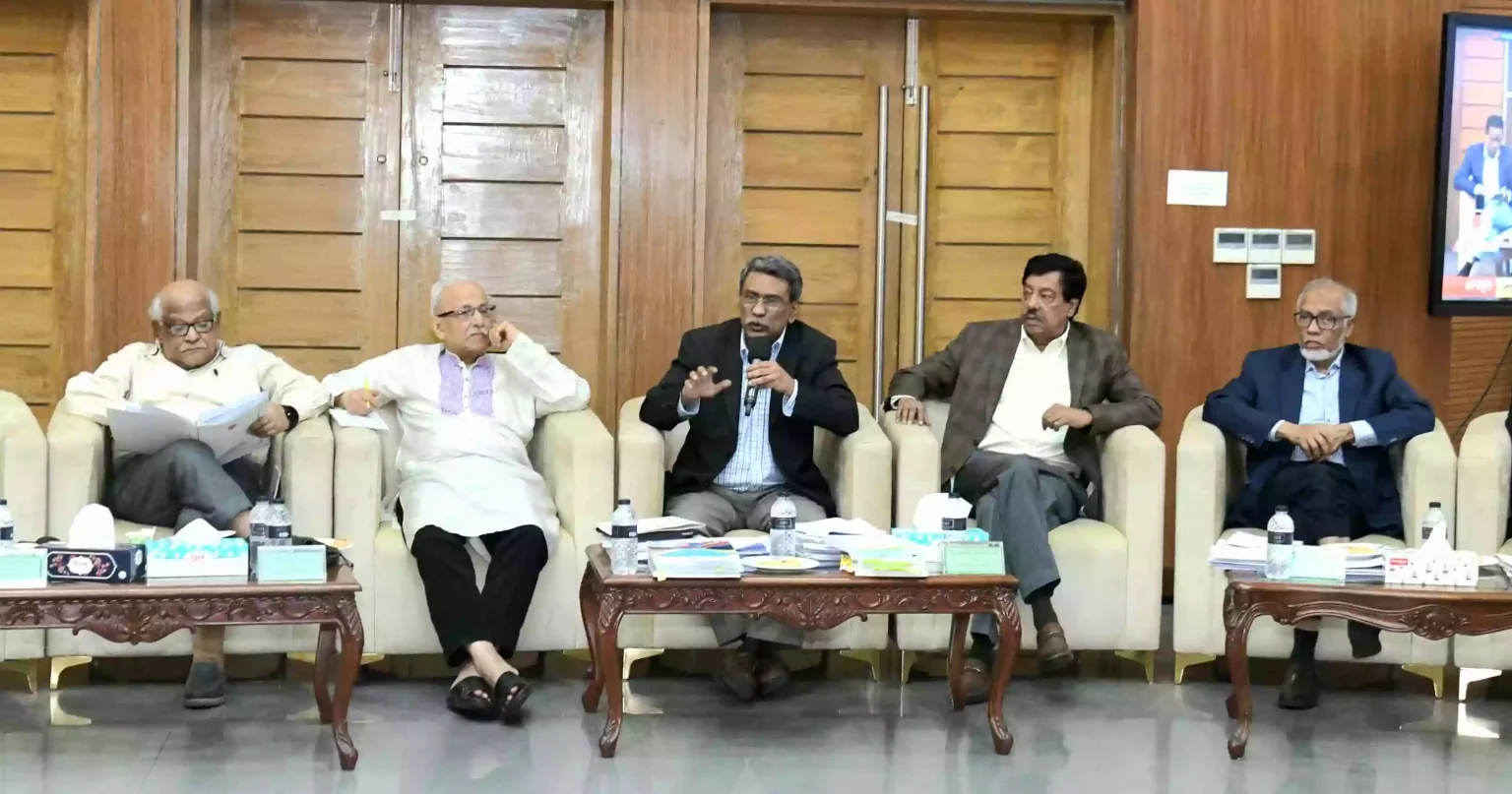Political parties have reached a consensus that no individual can hold the office of prime minister for more than 10 years in their lifetime. At the same time, they have also agreed to establish an independent police commission.
Vice-Chairman of the National Consensus Commission Professor Ali Riaz made the announcement on Sunday afternoon during the 19th day of the second phase of dialogues held at the Foreign Service Academy in Dhaka.
He said, “We have reached an agreement on one matter, although it hasn’t been officially announced yet. That is – an individual can serve as prime minister for a maximum of 10 years. We will mention this 10-year term limit in the charter.”
BNP Standing Committee member Salahuddin Ahmed stated, “Once we have said it, it stands – we do not want anyone to remain in the prime minister’s position for more than 10 years. I also said that if there are appointment committees for constitutional and statutory bodies, we will not accept that. We will include provisions for the appointment of the Election Commission in the Constitution, based on the opinion of this house. If discussions go beyond this, our condition will remain unchanged. I hope that will be considered. You may now announce the 10-year issue. In fact, this is our proposal.”
Earlier in the discussion, the National Consensus Commission presented a proposal to the political parties to form an independent police commission to ensure professionalism and accountability in the Bangladesh Police.
Following discussions, the parties agreed on the formation of an independent police commission, although they will continue to discuss its legal framework. On this issue, Ali Riaz said, “We agree regarding the police commission. We will continue to discuss the formation process. Bangladesh’s political parties have agreed to form an independent police commission through dialogue, which will ensure police accountability, transparency, and service to the public.”
According to the commission’s proposal, one of its main objectives is to ensure that the police force operates as a disciplined, professional, and accountable body. The commission will also be responsible for resolving complaints from both ordinary citizens and police personnel.
As per the proposal, the Bangladesh Police Commission will be headed by a retired Appellate Division judge under the age of 72. The commission’s member-secretary will be a retired police officer of Additional Inspector General rank under the age of 62.
The commission will include representation from both the government and the opposition. Members will include the Leader of the House, the Leader of the Opposition, the Speaker and Deputy Speaker of the National Parliament (the latter from the opposition party). In addition, a Supreme Court lawyer (with at least 15 years of experience in the High Court Division), a human rights activist (with at least 10 years of practical experience), and a retired police officer of Additional IGP rank will serve as members.
The draft stipulates that at least two members of the commission must be women. A separate selection committee is also proposed for choosing certain members, which will include the Home Minister, the Chairman of the Parliamentary Standing Committee on the Ministry of Home Affairs, and a High Court Division judge with at least 10 years of experience.
The chairperson and member-secretary of the Commission will serve full-time, while the other seven members will work on a voluntary basis. However, they may receive honorariums or allowances in accordance with the law for attending meetings and performing official duties.
The responsibilities, powers, accountability, resignation, and removal procedures for the chairperson, member-secretary, and other members of the Commission will be determined by law. The proposal further states that policy and executive decisions of the Commission must be approved by a majority vote of its members.
Today’s discussion topics also included the Police Commission, fundamental principles of state governance, and the expansion of citizens’ fundamental rights.
Representatives from 28 invited political parties and 2 political alliances – including BNP, Jamaat-e-Islami, and NCP – participated in the discussions.
National Consensus Commission members present at the meeting included Safar Raj Hossain, Badiul Alam Majumdar, Emdadul Haque, Iftekharuzzaman, and Ayyub Miah.


